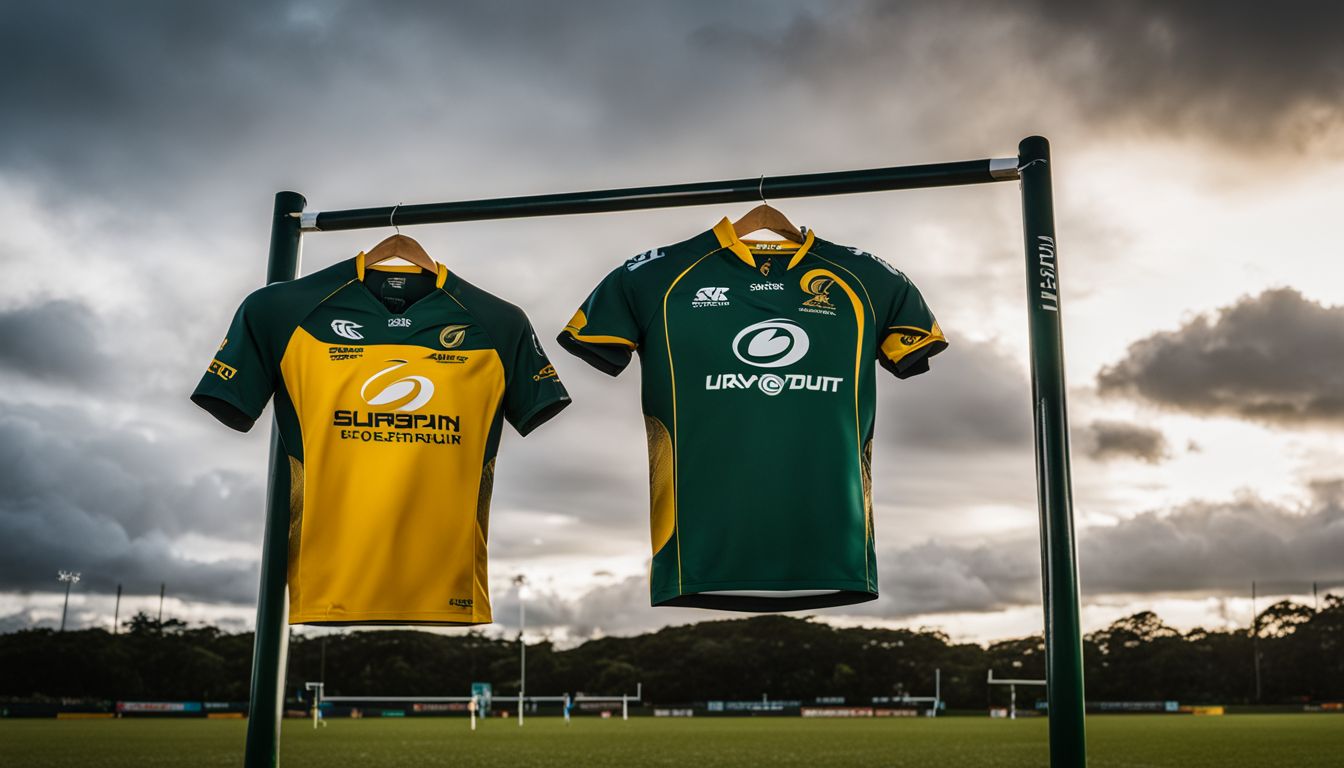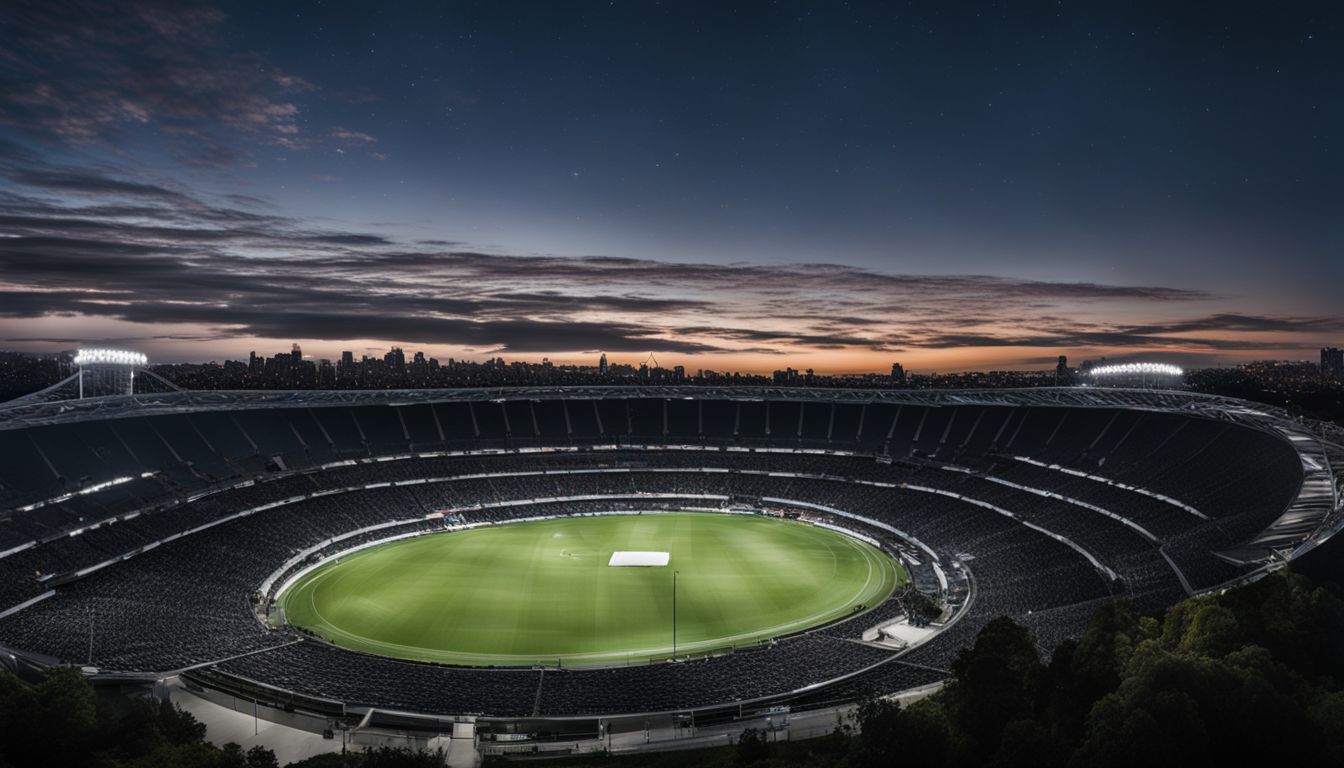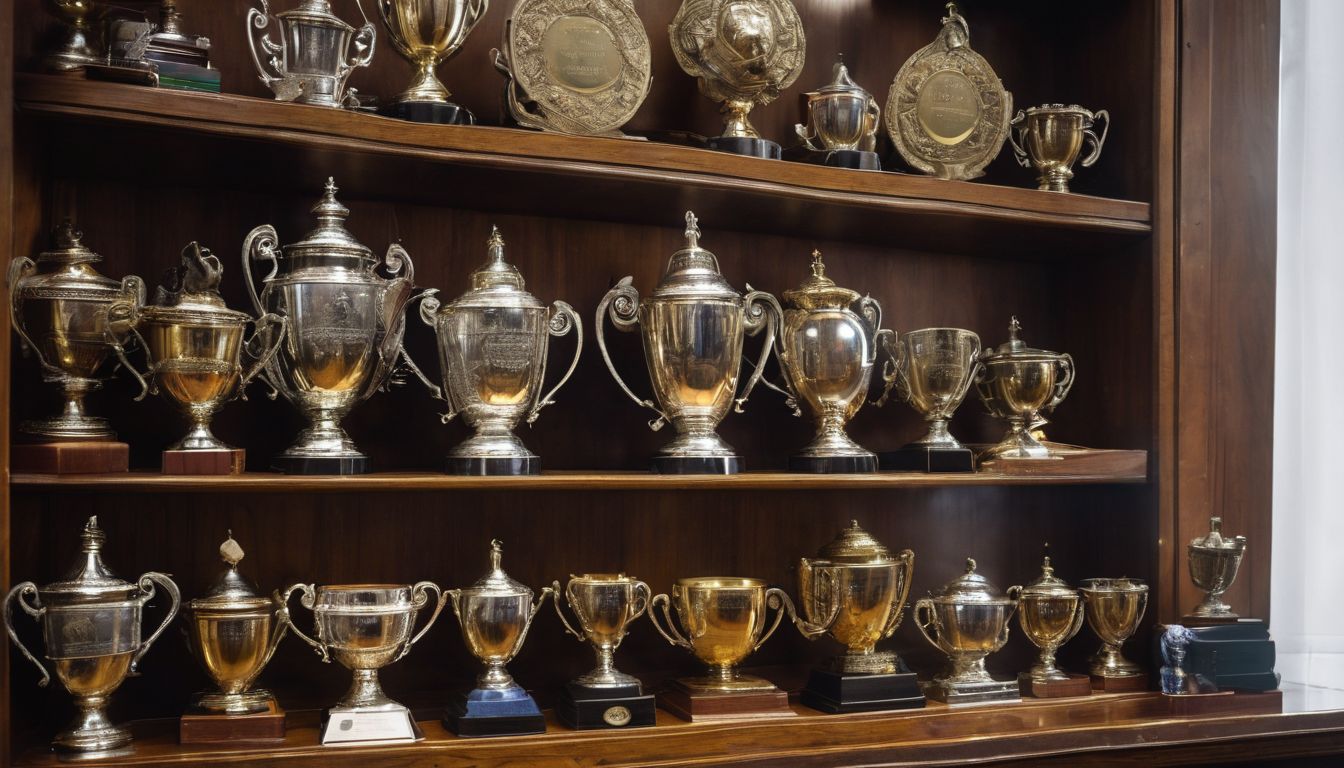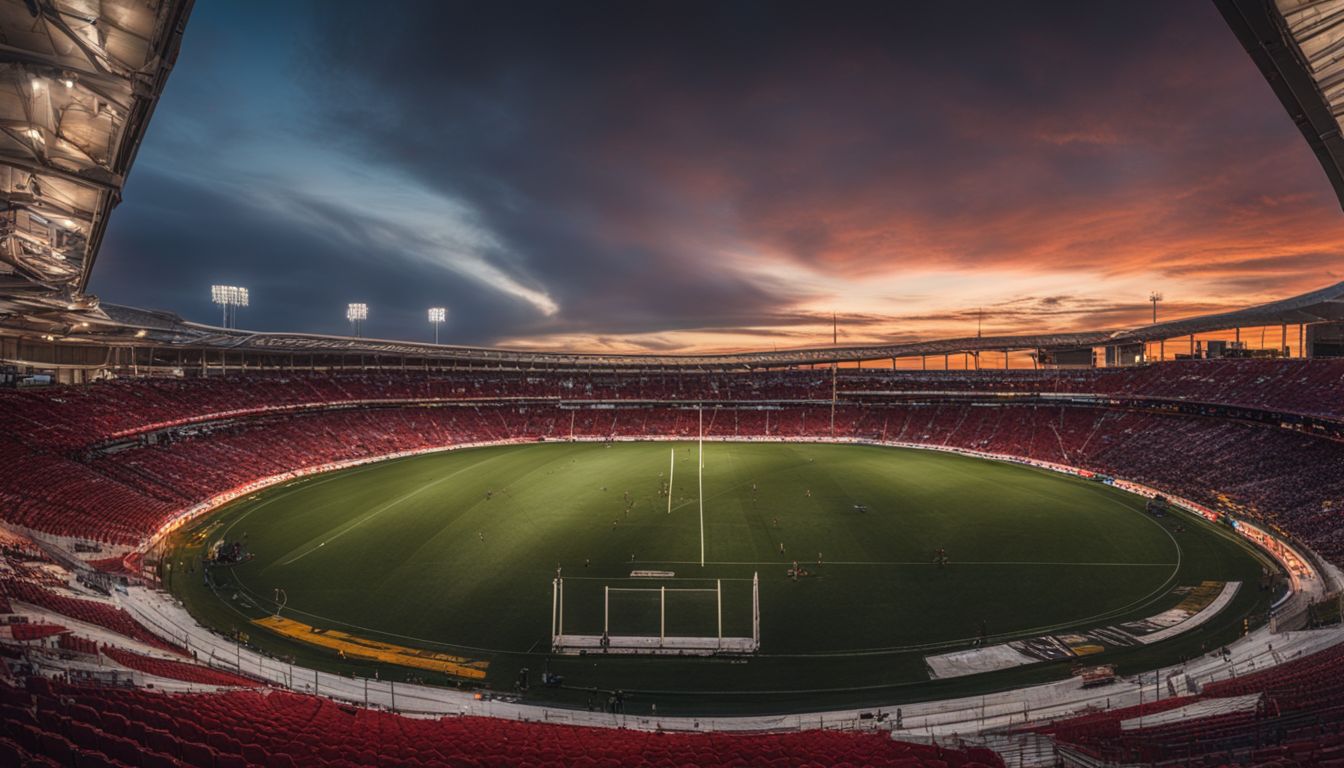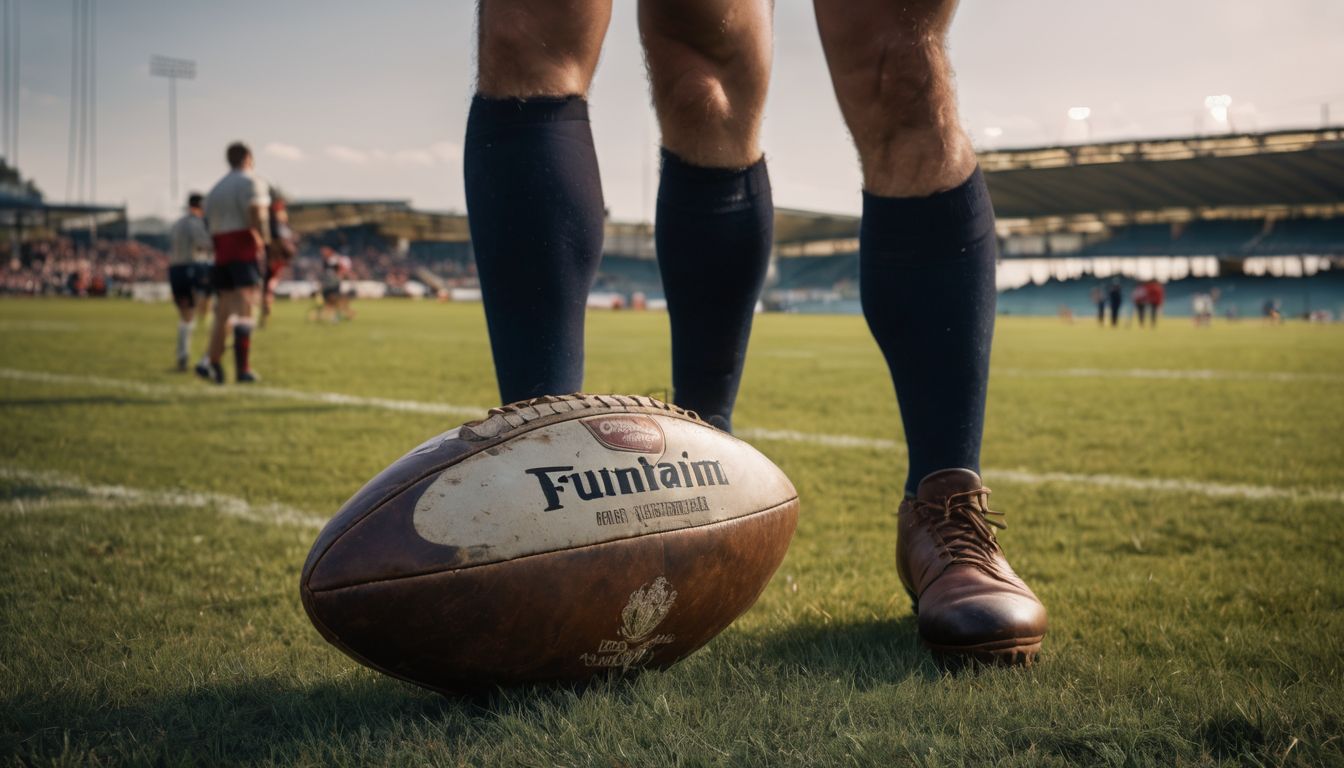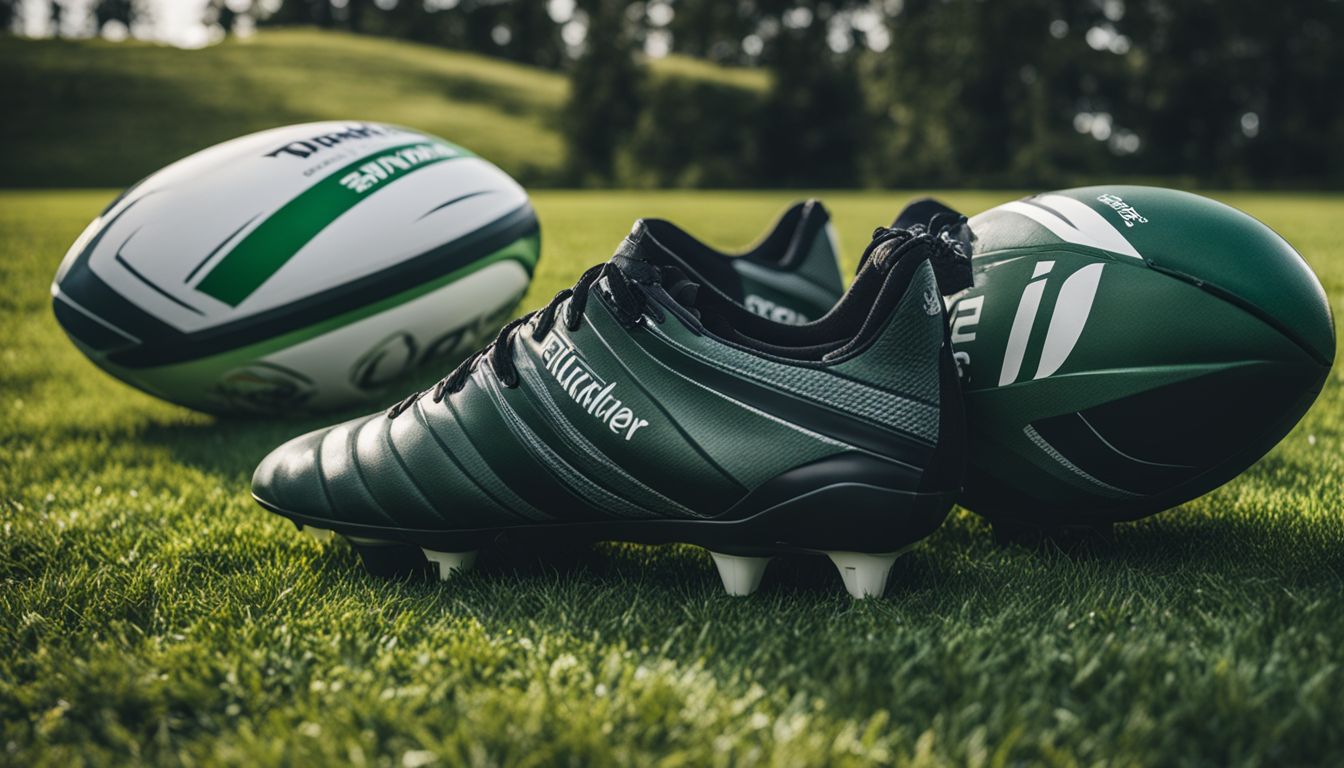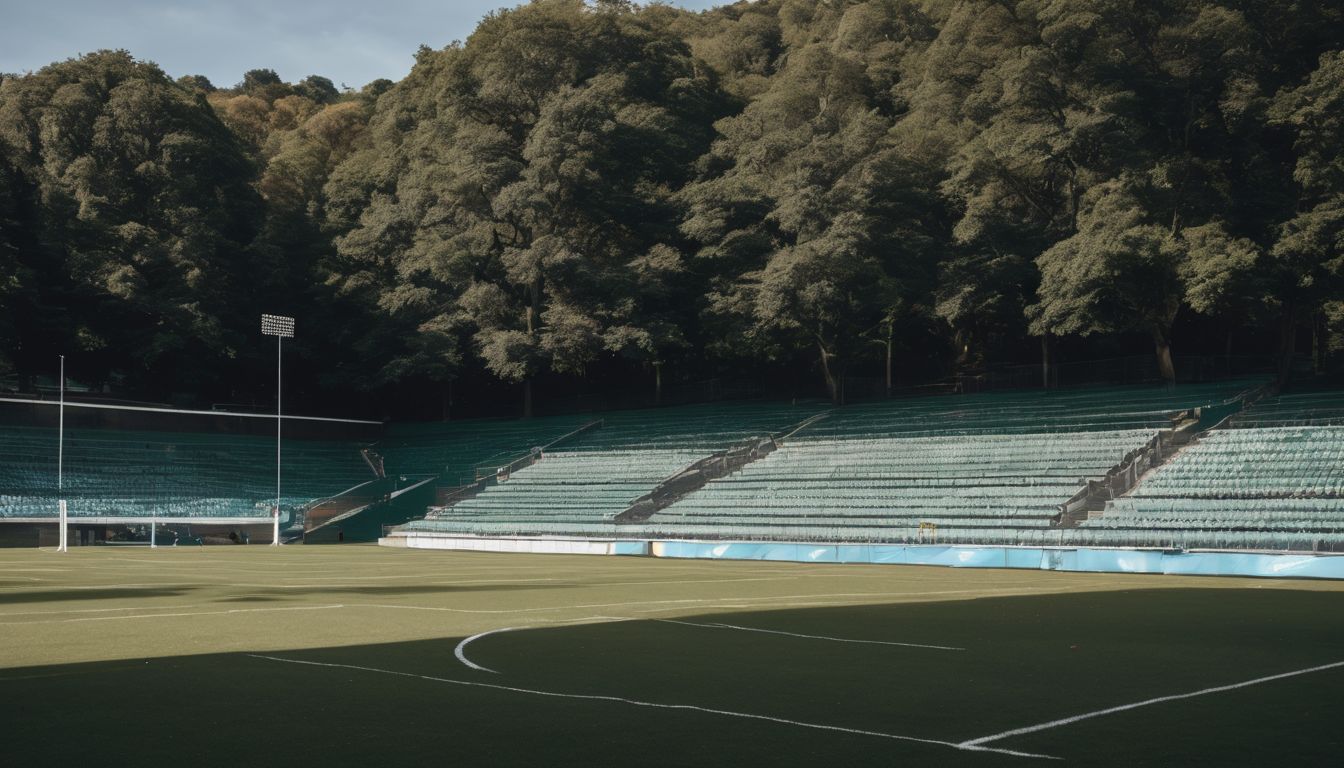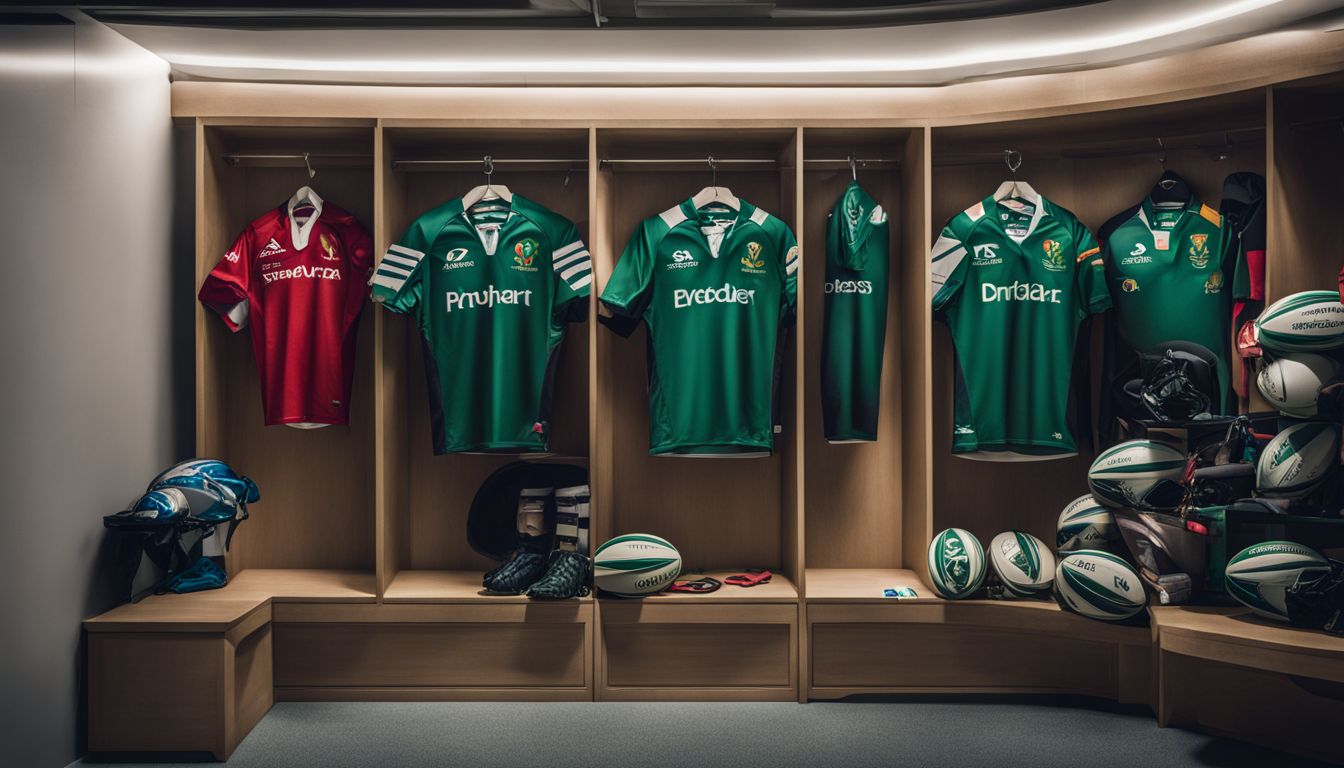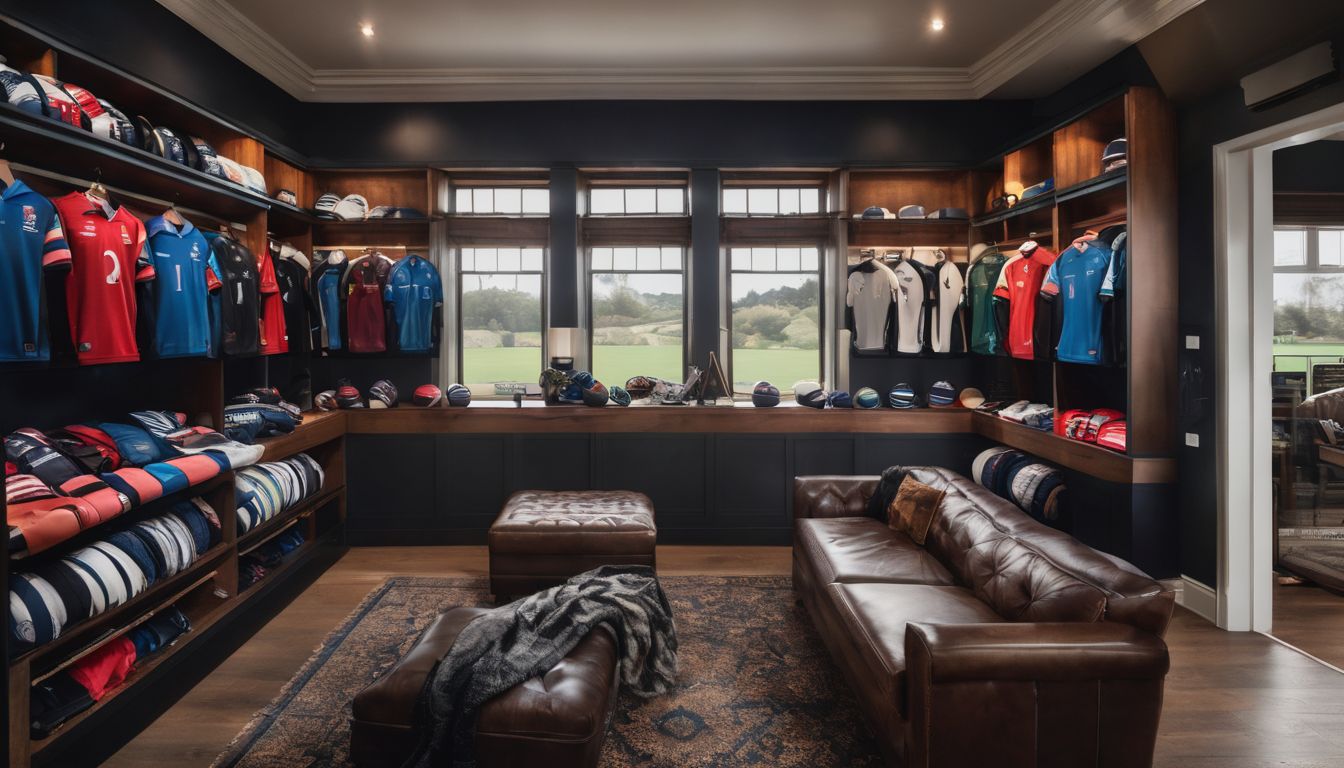Looking to dive into the thrilling world of Hurricanes Rugby Union Club Team? This professional team hails from Wellington, making waves in Super Rugby since 1996. Our blog will take you through their dynamic history, home grounds, and much more to bring you closer to the action on the field.
Get set for a roaring journey with the ‘Canes!
Key Takeaways
- The Hurricanes have been competing in Super Rugby since 1996 and are known for their resilience and strong performances, including reaching the playoffs in their second season.
- In 2016, they won their first Super Rugby Championship by defeating the Lions, with Beauden Barrett scoring the most points in a final.
- They play home matches at Wellington’s Sky Stadium which boasts a seating capacity of 34,500 and is central to fans from all over the region.
- The team invests in young talent through its development program, scouting promising players to ensure a future stream of rugby stars.
- Notable former players include Jonah Lomu and Ma’a Nonu; current head coach Jason Holland is supported by assistants Chris Gibbes and Cory Jane.
History of the Hurricanes
The Hurricanes Rugby Union Club Team has a rich history dating back to its early years in 1996. From unexpected performances to a new era of success, the team’s journey has been filled with exciting moments and achievements.
Early years: 1996-1997
In their debut season of 1996, the Hurricanes made an immediate impact in Super Rugby. Representing the lower North Island of New Zealand, they brought together a host of skilled athletes from nine provincial unions to form a solid squad.
Fans quickly rallied behind this new team as they showcased their potential on the field with dynamic plays and a strong team spirit.
Their first two seasons laid down a marker for what was to come; although they did not clinch the title, reaching the playoffs in just their second year proved that they were serious contenders.
This early period set foundations for resilience and determination, characteristics that would become hallmarks of the Hurricanes’ ethos moving forward into unexpected twists and turns during 1998-2002.
Expect the unexpected: 1998-2002
The Hurricanes faced unpredictable challenges during 1998-2002, proving that their resilience and adaptability were key assets. The team navigated through stormy seasons, often overcoming unexpected obstacles with determination.
Their ability to handle unprecedented situations set the stage for their evolution as a formidable force in professional rugby.
During this period, the Hurricanes demonstrated an unwavering commitment to their fans and the sport itself. They showcased their tenacity in facing unanticipated hurdles, cementing their reputation as a team capable of rising above unforeseen circumstances.
The years from 1998 to 2002 proved pivotal in shaping the Hurricanes’ character and fortitude, laying the groundwork for future successes.
New era: since 2003
The Hurricanes have shown their resilience and competitiveness in the new era since 2003, consistently making an impact in Super Rugby. They reached the semifinals multiple times, displaying their strong performance and determination on the field.
Notably, they secured a well-deserved championship victory in 2016 by defeating the Lions with their exceptional teamwork and outstanding skills.
Continuing to build on their legacy, the Hurricanes have set high standards for themselves while shaping rugby history with remarkable achievements and a steadfast commitment to excellence.
Their journey has inspired fans worldwide as they maintain their position as a formidable force in Super Rugby Pacific.
Home Grounds and Franchise Area
Home Grounds and Franchise Area: The Hurricanes Rugby Union Club Team plays their home games at the Sky Stadium in Wellington. The franchise area spans across the lower half of the North Island, covering the regions of Hawke’s Bay, Taranaki, Wairarapa-Bush and Manawatu.
Grounds
The Hurricanes play their home games at the Sky Stadium in Wellington. The stadium, with a seating capacity of 34,500, provides an electrifying atmosphere for fans and players alike.
Its central location in the capital city makes it easily accessible to supporters from all over the region.
The team’s dedication to their home grounds is evident in their strong performances at the Sky Stadium. Hosting matches at this iconic venue not only brings together passionate fans but also creates an intimidating environment for visiting teams.
Region
The Hurricanes represent the lower North Island of New Zealand in Super Rugby and are based in Wellington. The team is part of the Carolina’s Geographic Rugby Union (CGRU), which includes teams from North and South Carolina, Georgia, Tennessee, and Virginia.
Their home ground is the Sky Stadium in Wellington where they play their home games. The Hurricanes have a strong presence in professional rugby in New Zealand and continue to be a competitive force in Super Rugby.
Competing with passion, they hold a special place for rugby fans across the region as one of the leading forces representing their pride on the field. With their dedicated fan base and impressive track record, they embody resilience amidst challenges while upholding an unwavering commitment to excellence within their region.
Ownership, Finances, and Development
The Hurricanes Rugby Union Club Team is owned by a private consortium, with financial support from local businesses and sponsors. The team also invests in developing young talent through its development program.
Ownership and finances
The Hurricanes rugby team is privately owned and operated, with a focus on sustainable financial management. The franchise’s ownership group consists of local investors who are committed to the long-term success and stability of the team.
Financial resources are strategically allocated towards player development, coaching staff, and infrastructure to ensure competitiveness in the Super Rugby tournaments. The Hurricanes’ financial model prioritises prudent spending while fostering an environment that encourages growth and performance both on and off the field.
The club’s revenue streams include ticket sales, sponsorships, merchandise sales, and broadcasting rights for their matches. These income sources contribute to maintaining operational costs and investing in talent acquisition programs.
Development team
The development team is a crucial part of the Hurricanes’ strategy to nurture young talent. They focus on scouting and recruiting promising players from local clubs and schools within the franchise area.
The coaching staff closely monitors the progress of these young athletes, providing them with opportunities to develop their skills in junior matches and training programmes. By investing in the development team, the Hurricanes aim to secure a strong pipeline of future stars who embody the team’s values and playing style.
Through targeted player development initiatives, the Hurricanes sustain their legacy as a competitive force in Super Rugby by continuously refreshing their roster with new talent. This approach not only ensures a sustainable future for the club but also strengthens its connection to local communities within their franchise area.
Honours and Achievements
– Super Rugby (1996-Present): The Hurricanes have consistently been a strong contender in the Super Rugby league, with several playoff appearances and a championship win in 2016. Their impressive track record makes them a team to watch out for on the field.
Super Rugby (1996-Present)
- The team has made several notable achievements, including three appearances in the semi-finals and quarter-finals of Super Rugby over the years.
- In the Super Rugby Aotearoa, the Hurricanes continue to be a formidable force, displaying exceptional skills and determination.
- The Hurricanes’ performance in the DHL Super Rugby Pacific competition reflects their unwavering commitment to excellence and success.
- Throughout their participation in the Super 14 (formerly Super 12) competition, the Hurricanes have maintained a strong presence in professional rugby in New Zealand.
- The Sky Stadium in Wellington serves as the vibrant setting for home games, where fans gather to support and cheer for their beloved team.
- With a dedicated fan base, the Hurricanes’ influence in New Zealand rugby remains significant, making them an integral part of the country’s rugby landscape.
Records and achievements
The Hurricanes rugby team has an impressive list of records and achievements:
- They hold the record for the most tries scored in a single Super Rugby season, with 77 tries in 2017.
- The team also boasts the record for the most consecutive away wins, achieving 9 wins from 2015 to 2016.
- In 2016, the Hurricanes won their first Super Rugby title by defeating the Lions in the final with a dominant performance.
- Beauden Barrett, a former player of the Hurricanes, holds the record for most points scored in a Super Rugby final, with 15 points in the 2016 championship match.
- The Hurricanes have produced numerous All Blacks players, including Jonah Lomu and Ma’a Nonu, who have made significant contributions to New Zealand rugby.
- They were runners-up in the Super Rugby competition three times – in 2006, 2015, and 2021 – demonstrating consistent high performance over the years.
- The team’s unwavering commitment to excellence has earned them a well-deserved reputation as one of New Zealand’s top rugby clubs.
Current Squad and Coaching Staff
The Hurricanes’ current squad boasts a mix of experienced veterans and promising young talents, making them a force to be reckoned with in the Super Rugby competition. The coaching staff, led by head coach Jason Holland, brings a wealth of expertise and strategic insight to the team’s performance on the field.
Current players
The Hurricanes Rugby Union Club Team’s current player roster comprises seasoned veterans and promising newcomers, including:
- Jordie Barrett – Known for his powerful running and kicking abilities, he is a key player in the backline.
- Ardie Savea – Renowned for his ferocious style of play, he is a dynamic force in the loose forwards.
- Ngani Laumape – A formidable presence in the midfield, he consistently poses a threat to opposing defenses.
- Dane Coles – With his tenacity and leadership, he anchors the team from the hooker position.
- Asafo Aumua – A rising star at hooker, he showcases speed and agility on the field.
Former players
The Hurricanes have seen some remarkable players who have left a lasting impact on the team. These players, both legends of the game and rising stars, have all contributed to the team’s legacy in their own unique ways:
- Christian Cullen – Renowned for his speed at fullback, he earned 58 caps for the All Blacks.
- Jonah Lomu – A true rugby icon known for his powerful runs and imposing stature, he became one of the most recognisable rugby players in the world.
- Tana Umaga – An influential figure in New Zealand rugby, he led by example as a strong leader both on and off the field.
- Conrad Smith – Known for his exceptional defensive skills and astute decision-making, he was instrumental in guiding the team’s defence during his time with the Hurricanes.
- Ma’a Nonu – A dynamic and physical presence in midfield, Nonu’s aggressive style of play made him a vital asset to the Hurricanes’ attacking prowess.
- Beauden Barrett – An agile and versatile player with exceptional playmaking abilities, Barrett played a key role in orchestrating the Hurricanes’ attack before moving to the Blues.
- Jerry Collins – Remembered for his ferocious tackles and rugged playing style, Collins epitomised toughness on the field during his tenure with the Hurricanes.
- Nehe Milner-Skudder – Known for his electrifying pace and elusive running lines, Milner-Skudder provided an added dimension to the Hurricanes’ backline with his attacking flair.
Head coach and assistant coaches.
The Hurricanes rugby team is currently led by Head Coach Jason Holland, who brings a wealth of experience and knowledge to the team. Assisting him are Assistant Coaches Chris Gibbes and Cory Jane, both former Hurricanes players who understand the dynamics of the game at a profound level.
- Head Coach Jason Holland has been an integral part of the Hurricanes coaching staff since 2017. He previously served as an assistant coach before taking over as head coach in 2020.
- Assistant Coach Chris Gibbes, with his expertise in forward play, provides invaluable guidance to the team. His strategic approach has been instrumental in shaping the team’s performance on the field.
- Assistant Coach Cory Jane, a former Hurricanes player known for his attacking prowess, contributes significantly to enhancing the team’s backline strategies.
- The cohesive leadership and coaching direction provided by this trio have played a pivotal role in shaping the Hurricanes into a formidable force within Super Rugby Pacific.
Conclusion
In conclusion, the Hurricanes Rugby Union Club Team has made a significant impact on Super Rugby since its formation in 1995. With a history of reaching both semi-finals and quarterfinals in separate seasons, they continue to be an influential force.
Based in Wellington, New Zealand, their dedicated fan base and strong presence in professional rugby make them a formidable team to watch. As they compete in the DHL Super Rugby Pacific competition, their performance is closely followed by enthusiastic rugby fans.
With their home games at the Sky Stadium in Wellington, the Hurricanes are undoubtedly a competitive force to reckon with.
FAQs
1. What sports team are the Hurricanes?
The Hurricanes are a Rugby Union club team that competes in various fixtures similar to the energy of storms, typhoons, and cyclones.
2. How can I stay updated on the Hurricanes’ team news?
To keep up with the latest team news, check out their official schedule and announcements for any updates on players and game plans.
3. Where do I find information about past match results for the Hurricanes?
You’ll find all recent match results by looking at their fixtures and reviewing past games to analyse how well they performed.
4. When is the next game for the Hurricanes scheduled?
For upcoming games, refer to their sports schedule which lays out all future fixtures so fans can plan ahead to watch or attend.



